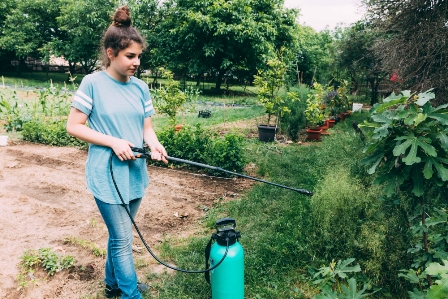In a world where water scarcity is becoming an increasing concern, it’s crucial for individuals to adopt practices that promote conservation. One such area where we can make a significant impact is in our landscapes. This article explores the importance of water-wise landscaping and how incorporating efficient irrigation methods can be a game-changer.
Understanding Efficient Irrigation
Efficient irrigation involves utilizing systems that deliver water directly to the roots of plants, minimizing wastage. Two popular methods include drip irrigation and sprinkler systems. Drip irrigation involves the slow release of water directly to the soil, while sprinkler systems disperse water in a controlled manner.
The benefits of efficient irrigation extend beyond water conservation. It’s a cost-effective solution that ensures your plants receive the necessary moisture without excess runoff.
Planning Your Landscape with Water Efficiency in Mind
Before diving into irrigation methods, it’s essential to plan your landscape with water efficiency in mind. Choose water-wise plants that thrive in your climate, group them based on similar water needs, and use mulch to retain moisture in the soil.
Smart Watering Practices
Monitor soil moisture regularly to adjust watering schedules accordingly. Incorporate rain sensors to prevent irrigation during wet weather. These simple practices contribute to efficient water use.
DIY Irrigation System Installation
For those keen on a hands-on approach, installing a drip irrigation system can be a rewarding project. Gather the necessary materials and follow a step-by-step guide for successful installation. Don’t forget to maintain your system regularly to ensure optimal functionality.
The Role of Technology in Efficient Irrigation
Embrace technology with smart irrigation controllers and weather-based apps. These tools allow you to automate irrigation based on weather forecasts, ensuring your landscape receives water when it needs it most.
Overcoming Common Irrigation Challenges
Address common issues like clogs in drip irrigation or adjusting sprinkler heads for optimal coverage. Understanding and overcoming these challenges ensures your irrigation system operates efficiently.
Environmental Impact of Efficient Irrigation
By reducing water wastage, efficient irrigation plays a role in supporting local ecosystems. Conserving water in your landscape contributes to the overall health of your environment.
Educational Initiatives and Resources
Discover local water conservation programs and online resources that provide guidance on implementing efficient irrigation projects. Education is key to widespread adoption of water-wise practices.
Economic Benefits for Homeowners
Beyond environmental impact, efficient irrigation translates to lower water bills and increased property value. Investing in water-wise landscaping is not just a contribution to the planet; it’s a wise economic decision.
FAQs
Efficient irrigation can save up to 50% more water compared to traditional methods, depending on the system and landscape.
Many regions offer incentives, tax credits, or rebates for implementing water-wise practices, including efficient irrigation systems.
Yes, efficient irrigation methods can be tailored to suit various landscapes, from residential gardens to large commercial spaces.
While drip irrigation systems require occasional maintenance, the costs are minimal compared to the long-term water savings.
Smart controllers adapt to weather conditions, ensuring optimal watering schedules, leading to healthier landscapes and significant water savings over time.
Conclusion
Incorporating efficient irrigation in your landscape is a step towards a sustainable future. From DIY projects to embracing technology, there are various approaches to ensure your plants thrive while minimizing water consumption. Make a positive impact on your environment, your wallet, and the overall well-being of your landscape.


